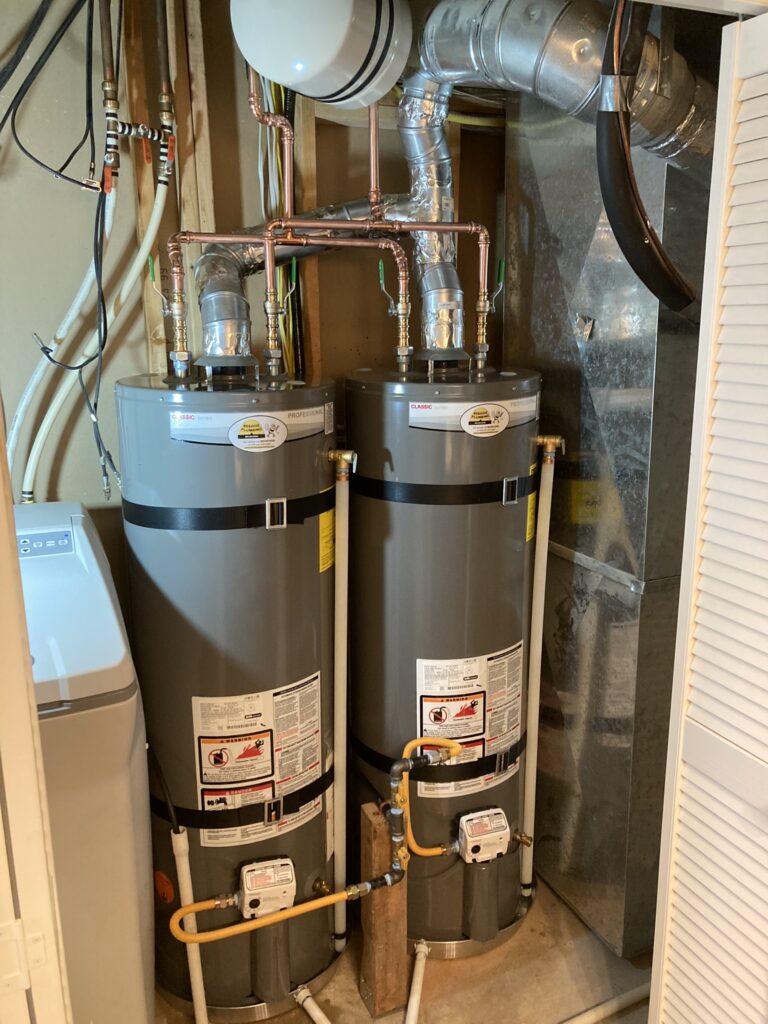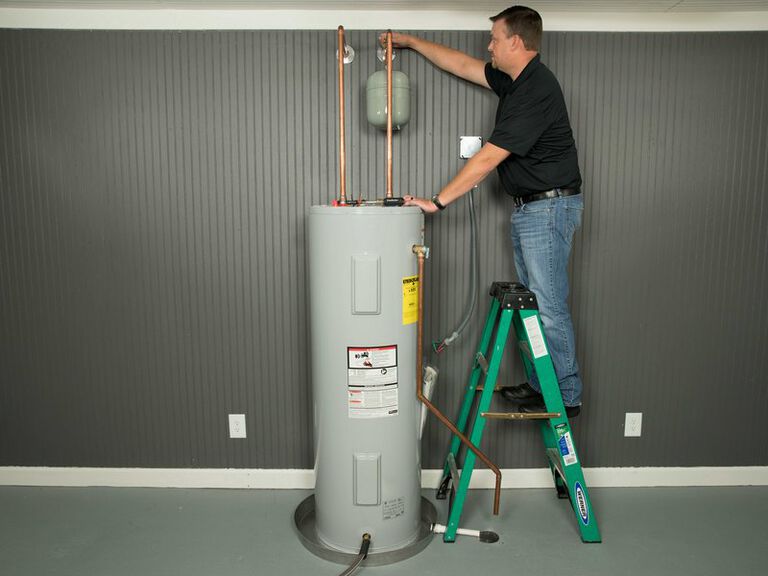Affordable Drain Cleaning Services to Eliminate Blockages and Bad Odors
Affordable Drain Cleaning Services to Eliminate Blockages and Bad Odors
Blog Article
Total Guide to Water Heating SystemInstallment and Replacement
Understanding the complexities of hot water heater setup and substitute is vital for house owners looking for to ensure effectiveness and dependability in their warm water supply. From picking the ideal type and size to implementing a smooth installment procedure, a number of aspects should be considered to avoid usual pitfalls. This overview will supply you with the required actions and insights to browse the intricacies of this home enhancement job, while additionally stressing crucial maintenance methods that can prolong the life of your system. As you check out these elements, you might find yourself reassessing your existing setup and recognizing areas for renovation.
Types of Water Heating Systems
When taking into consideration hot water heater installation and substitute, it is important to understand the different sorts of hot water heater offered in the market. The most usual types consist of storage tank hot water heater, tankless water heating units, heat pump hot water heater, and solar water heating units.
Tank water heaters are typical systems that keep a certain volume of hot water, making them easily offered when required. In comparison, tankless water heating units give warm water on demand, eliminating the demand for storage.
Heatpump water heating systems use electrical energy to transfer warm from the air or ground to warmth water, supplying significant energy financial savings but needing more room and details installation problems. Solar water heating units harness solar energy to heat water, supplying a green option with potential lasting expense savings, although they commonly need a backup system for cloudy days.
Comprehending these alternatives guarantees educated decisions relating to setup and substitute, accommodating particular demands and choices.
Choosing the Right Size
Picking the ideal dimension for a water heating unit is important to make sure optimal performance and efficiency. A device that is as well little will have a hard time to satisfy family demands, leading to inconsistent warm water schedule and enhanced power intake. On the other hand, an extra-large water heating system can cause unnecessary power waste and higher utility expenses.
To figure out the ideal size, think about the family's height warm water usage. This can be determined based on the variety of occupants and their common hot water needs. A family members of 4 might call for a water heating system with a capability of 50 to 80 gallons, depending on the use patterns, such as simultaneous showers and laundry.
In addition, analyze the recovery rate, which measures exactly how quickly a heating system can renew warm water after it has been utilized. For tankless designs, concentrate on the circulation price, measured in gallons per min (GPM), to ensure it fulfills the household's simultaneous demand.

Installment Refine Review

Following, the old unit must be detached and removed, making sure to comply with local codes and policies pertaining to disposal. Once the old unit is out, the new water heating unit can be positioned in position. This step includes attaching the water supply lines, making sure that all fittings are secure and leak-free.
After developing water connections, it's vital to link the power supply, whether electric or gas, adhering to the manufacturer's guidelines diligently. As soon as all links are made, the system must be full of water, and the power can be turned back on. Ultimately, it is necessary to inspect for leaks and guarantee the hot water heater is working properly before completing the setup process.
Typical Installation Mistakes

An additional regular error is disregarding to adhere to regional codes and laws. Failing to adhere to these standards can not just bring about safety hazards but might also lead to pricey fines or the demand for pricey reinstallation. In addition, incorrect airing vent is an essential concern. Poor ventilation can create hazardous gas accumulation, positioning significant health threats.
Incorrect plumbing links are additionally a common mistake. Stopping working to secure connections or using the wrong kind of fittings can cause leaks and water damages. Additionally, overlooking the importance of a correct drainpipe pan can cause considerable water damages if leaks do take place. Finally, poor insulation of pipes can lead to warmth loss, lowering performance. By staying clear of these common setup errors, property this post owners can guarantee their water heating system operates safely and efficiently, optimizing performance and durability.
Upkeep Tips for Longevity
Proper upkeep of a water heater is essential for its durability and optimal performance. Routine inspections and servicing can stop costly repairs and extend the home appliance's lifespan. Begin by inspecting the temperature level setting; it must usually be set between 120 ° F and 140 ° F for ideal energy effectiveness and safety and security.
Every six months, purge the storage tank to remove debris accumulation, which can hinder heating performance and create deterioration. To do this, turn off the heater, link a hose to the drainpipe valve, and let the water run up until it is clear.
When they are corroded,Anode poles ought to be examined annually and replaced. These poles help prevent container deterioration by bring in destructive components in he said the water.
Furthermore, examine the stress safety valve routinely to ensure it is functioning correctly. This valve is important for protecting against too much stress accumulation within the storage tank.
Last but not least, think about scheduling a specialist upkeep check every couple of years for extensive inspections and maintenance. By sticking to these maintenance ideas, homeowners can considerably improve the performance, safety and security, and lifespan of their hot water heater, making sure trusted warm water for many years to come.
Conclusion
In final thought, correct installment and upkeep of water heating units are vital for guaranteeing performance and long life (water heater installation). Picking the appropriate kind and dimension, adhering to installation guidelines, and avoiding typical mistakes substantially add to optimal efficiency. Routine maintenance checks and professional servicing aid endure performance and avoid costly repair work. By comprehending these essential elements, property owners can achieve a original site reputable hot water supply while minimizing potential issues associated with hot water heater procedure.
Understanding the ins and outs of water heater setup and substitute is important for homeowners seeking to make certain effectiveness and dependability in their warm water supply.Tank water heaters are traditional systems that save a specific volume of warm water, making them conveniently available when required. In contrast, tankless water heating systems supply warm water on need, eliminating the requirement for storage space. Selecting a water heater that is either too tiny or as well big can lead to inefficiencies, resulting in poor warm water supply or excessive energy usage.
By comprehending these essential elements, homeowners can attain a trustworthy warm water supply while decreasing prospective concerns related to water heater operation. pipe repair.
Report this page